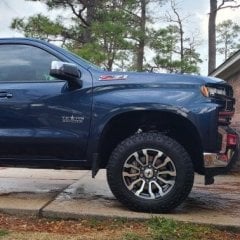Fuel Economy For 5.3L & 6.2L With DFM Released
-
Similar Content
-
- 0 replies
- 92 views
-
- 3 replies
- 357 views
-
- 6 replies
- 392 views
-
6L90 TCC failure at 50,000 miles. First one failed at 25,000.
By s10dragracer888,
- torque converter
- 6l90
- (and 8 more)
- 0 replies
- 517 views
-
- 7 replies
- 841 views
-
-
Recently Browsing 0 members
- No registered users viewing this page.
-
Forum Statistics
246k
Total Topics2.6m
Total Posts -
Member Statistics
-
Who's Online 17 Members, 2 Anonymous, 1,831 Guests (See full list)
















Recommended Posts
Join the conversation
You can post now and register later. If you have an account, sign in now to post with your account.